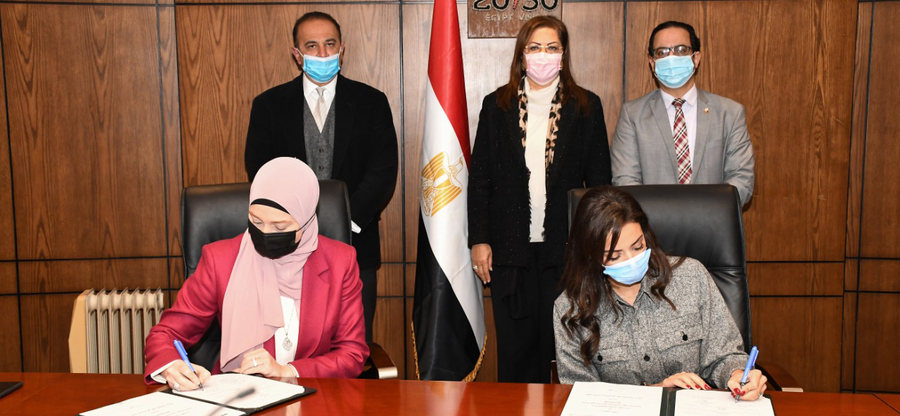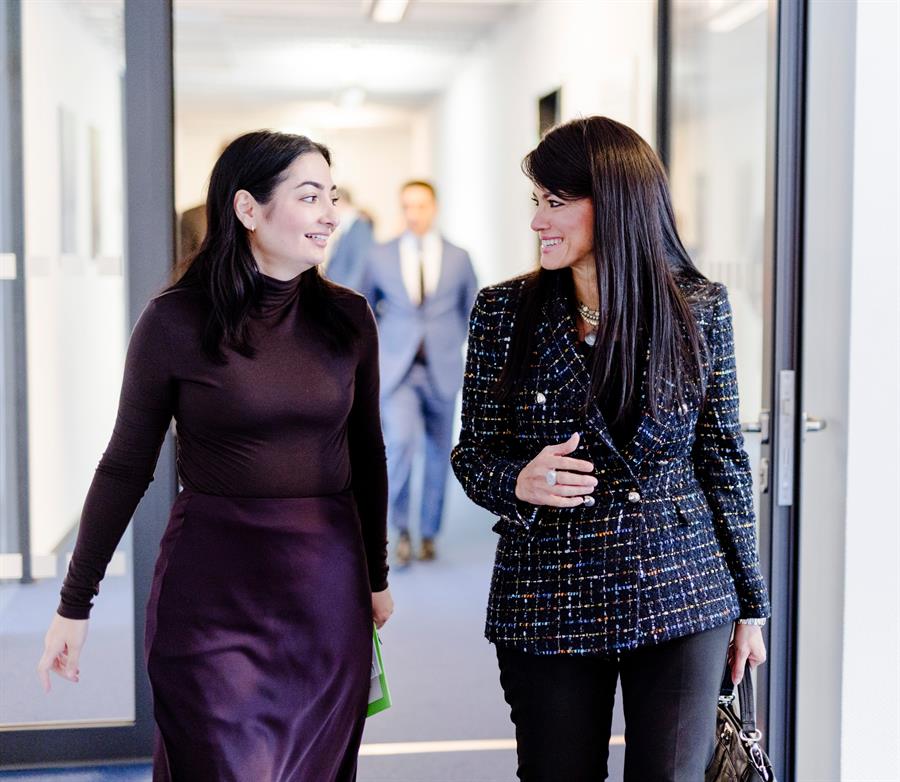Ministry of Planning and Economic Development signs a cooperation protocol with ECOnsult to set sustainability standards for "A Decent Life" projects

26 January 2021
Dr. Hala El-Said: The protocol
represents a quantum leap in the "A Decent Life" initiative by
adopting the concept of "sustainable villages" for the first time
Preparing a document that
includes a set of detailed instructions on how to reach sustainable rural
communities and apply it to some "A Decent Lift" villages as a pilot
Cairo,
January 26, 2021
Dr. Hala El-Said, Minister of
Planning and Economic Development, witnessed the signing of a cooperation
protocol between the ministry and ECOnsult Design, an engineering and
environmental consultancy. The protocol falls within the framework of achieving
sustainable development in villages and rural communities and applying the best
international standards in implementing "A Decent Life" projects.
The protocol aims to prepare a
report on the implementation of the UN Sustainable Development Goals in the
most disadvantaged villages and rural communities. It also aims to prepare a
document that includes a set of "detailed instructions" on how to
reach sustainable rural communities to enhance the development impacts.
The end purpose is to set goals
covering all dimensions of sustainable economic, social and environmental
development, provided that the content of this document is applied to the
villages of the "A Decent Life" initiative as a pilot project.
Ministry of Planning and Economic
Development is committed to providing the required facilities and coordination
with the state agencies concerned with the objectives of the protocol to
implement its objectives.
During her speech at the signing
ceremony, Dr. Hala El-Said indicated that achieving sustainable development in
its comprehensive sense requires strengthening cooperation between the
government, the private sector, civil society, universities, research centres,
and others. She added that this confirms the importance of concerting the
efforts of the various main actors in the state to achieve these goals.
El-Said reviewed the state's
efforts to achieve economic reform within the framework of Vision 2030. She
noted that the government's implementation of many reforms, through the first
phase of the national economic and social reform program since November 2016,
has led to the achievement of overall stability and comprehensive growth.
This was reflected in the
positive indicators that the Egyptian economy witnessed in the fiscal year
2019/20 and before the outbreak of the Covid 19 pandemic.
El-Said stressed the state’s
interest in localizing development, or what we call “localization of the
sustainable development goals,” to achieve the concept of “inclusive and
sustainable growth and balanced regional development”, as one of the main
pillars of Egypt's 2030 Vision. This aims to maximize the benefit from the
comparative advantages of the Egyptian governorates and regions.
The Minister of Planning and
Economic Development pointed out that the ministry is working in coordination
with all ministries and relevant authorities to implement Egypt Vision 2030 in
all its economic, social, and environmental dimensions. The implementation
falls in line with the international effort to implement the UN goals of sustainable
development.
In this context, the Ministry
welcomes cooperation with ECOnsult by signing the cooperation protocol between
the two sides.
Dr. Hala El-Said explained that
cooperation represents a qualitative leap in the “Decent Life” initiative, by
adopting the concept of “sustainable rural communities” for the first time.
"It is the result of the Ministry's continuous efforts to evaluate the
presidential initiative and the development impact of the implemented projects
and interventions," she added.
On the objectives of cooperation
between the two sides within the framework of the protocol; El-Said stressed
that the two parties seek cooperation in support of the transformation to a
sustainable rural community model, with a focus on the poorest rural villages
and communities.
The implementation of programs
and policies would take into account the concept of "multidimensional
poverty", because of its significant impact on the quality of life
indicators, the minister explained.
This comes in light of the
environmental changes taking place in the world and the country's interest in
sustainable development and the trend towards a green economy following Vision
2030, and in line with the UN Sustainable Development Goals, especially the
eleventh goal, regarding the establishment of "sustainable cities and
communities."
El-Said added that the government
is adopting a national strategy for the transition to the green economy. She
added that work is underway to implement 30% of investment projects according
to environmental sustainability and green economy standards.
In cooperation with the Ministry
of Environment, standards for environmental sustainability have been set and
have been approved by the Cabinet. Accordingly, work is underway to train cadres
in various bodies to apply these standards, El-Said explained, noting that
Egypt came at the forefront of the countries in the region that Green bonds
issued on the international market.
El-Said added that the protocol
aims to cooperate in setting up programs to design and implement green
buildings in the neediest rural communities, enabling them to adapt to climate
changes and achieve the necessary flexibility in this context. It also takes
into account the different characteristics of these rural, geographical,
demographic, economic, social and cultural communities.
Dr. Hala El-Said stressed the
importance of the report and the detailed guidance document in preparing the
national reports to be submitted to the relevant international organizations, such
as the voluntary national report on the implementation of the sustainable
development goals.
It will also lead to the
availability of information, to facilitate the follow-up of progress in
implementing the sustainable development goals in the poorest villages and
rural communities.
In the conclusion of her speech,
the Minister of Planning and Economic Development affirmed the state's
determination to move forward to complete the process of comprehensive and
sustainable reform and development.
"It requires years of
serious and continuous work in cooperation between all development partners
from the private sector and civil society with the government."









